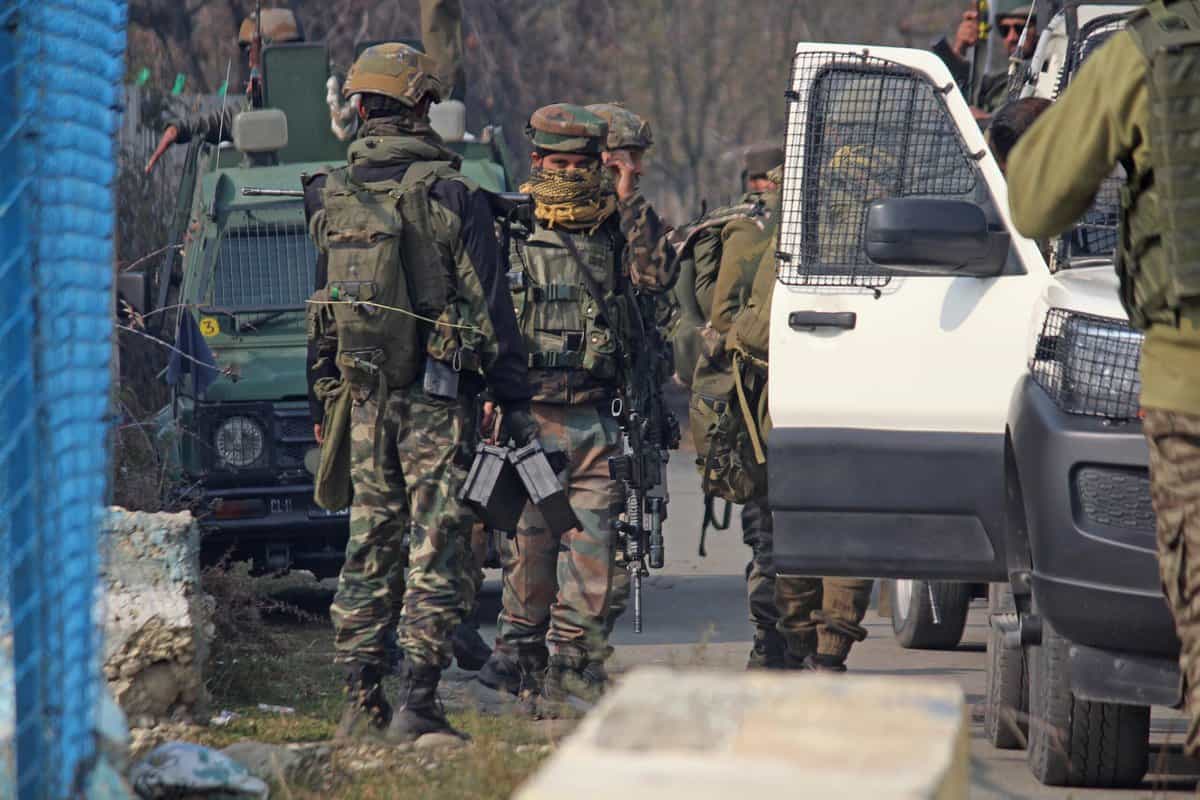
This was an unusual flag march in various towns in Kashmir on Saturday to instill confidence among voters to vote in three Lok Sabha seats in the Valley. The electoral history of Kashmir even during the times of heightened militancy, did not show any such precedent. In the year 1996, when the armed militancy guided and delivered its life-threatening messages so openly that shiver went through spines no such exercises were held.
If this is innovative thinking of area domination and instilling confidence among the voters, it needed to be explained in a comprehensive fashion as these exercises are not taken in normal situations. The question is, whether security forces have seen more threats than are usually analyzed in the place which has seen more than three decades of terror violence and itself a compendium of tragedies of various eras. This new strategy must be having some meaning that was not visible or applicable in the past. This needs a thorough and convincing explanation.
It seemed ironic. There is no such visible threat on the ground. Even if there are threats in the cyber world or in the narratives moving on under the cover of silence, it is open to debate whether flag marches are the answers to such apprehensions.
In India, flag marches are usually seen as an exercise which is undertaken to tell that the security forces were there, to prevent escalation of a bad and tense situation, usually communal riots, or violent protests of high magnitude. At the moment Kashmir has not witnessed no violence , and in fact, it is season with the huge promise of tens of thousands thronging the Valley every month. The display strength of troops with their weapons is not an ideal reflection of improved situation. It may prove counterproductive.
This huge demonstration of domination of the ground situation by troops at the time of elections in Kashmir may bring out two conclusions – that the situation beneath the surface is so disturbing that it can erupt into something untoward of great magnitude that it had become necessary to tell the people that security forces are there to take care of the security and safety of the voters before, during and after the elections. This is assumed purpose, but then it has to weighed against the repeated claim of the improved situation to the extent that the removal of the Armed Forces Special Powers Act or AFSPA, has come into sight.
Union Home Minister Amit Shah in a recent interview with a TV channel promised that the Central government would, for sure, will take call on the removal of the AFSPA that provided impregnable immunity to the security forces from prosecution under law because of their operations. AFSPA has been in force in Jammu and Kashmir for the past 34 years. The Home Minister’s statement was hailed as a welcome movement forward and a testament to the improved situation since August 2019 when Article 370 was abrogated, ending the special status and privileges of the erstwhile state of Jammu and Kashmir.
Within days of his statement, the not so refined display of troops marching in streets that too with a stated objective of generating confidence for the elections. the two things don’t gel. Kashmir’s situation is changed to a large extent, the people are feeling it and also demonstrating the same by way of their normal work and living their life without fear of shadows of terrorism. The government needed to build on the mood of normalcy and its acceptance all across Kashmir as an accomplished task.
Today’s situation and elections are on a different plank and time altogether. There is no visible violence in any part of Kashmir for the past many months, barring one or two incidents, the Valley has been free of terror violence. The people have moved on. Added to this is that there is not even a faint shadow of the call for boycott of elections, which used to define the polls in Kashmir and the vote percentage was viewed in terms of those who chose to vote against the threats and boycott calls, and those who stayed home, willingly, unwillingly, siding with the separatist narrative. The indifference among voters, as is case, in other parts of the country, is not seen through the same prism. Its more than three-decade-long history of Pakistan sponsored terrorism and the disaffected elements, makes it vote for Indian democracy versus the writ of separatism.
This has to change. This change should not be allowed by measures as flag marches. The voters mobilization should be left to political parties and awareness campaigns why it is important to vote , not to the demonstration of troops on roads and streets.
